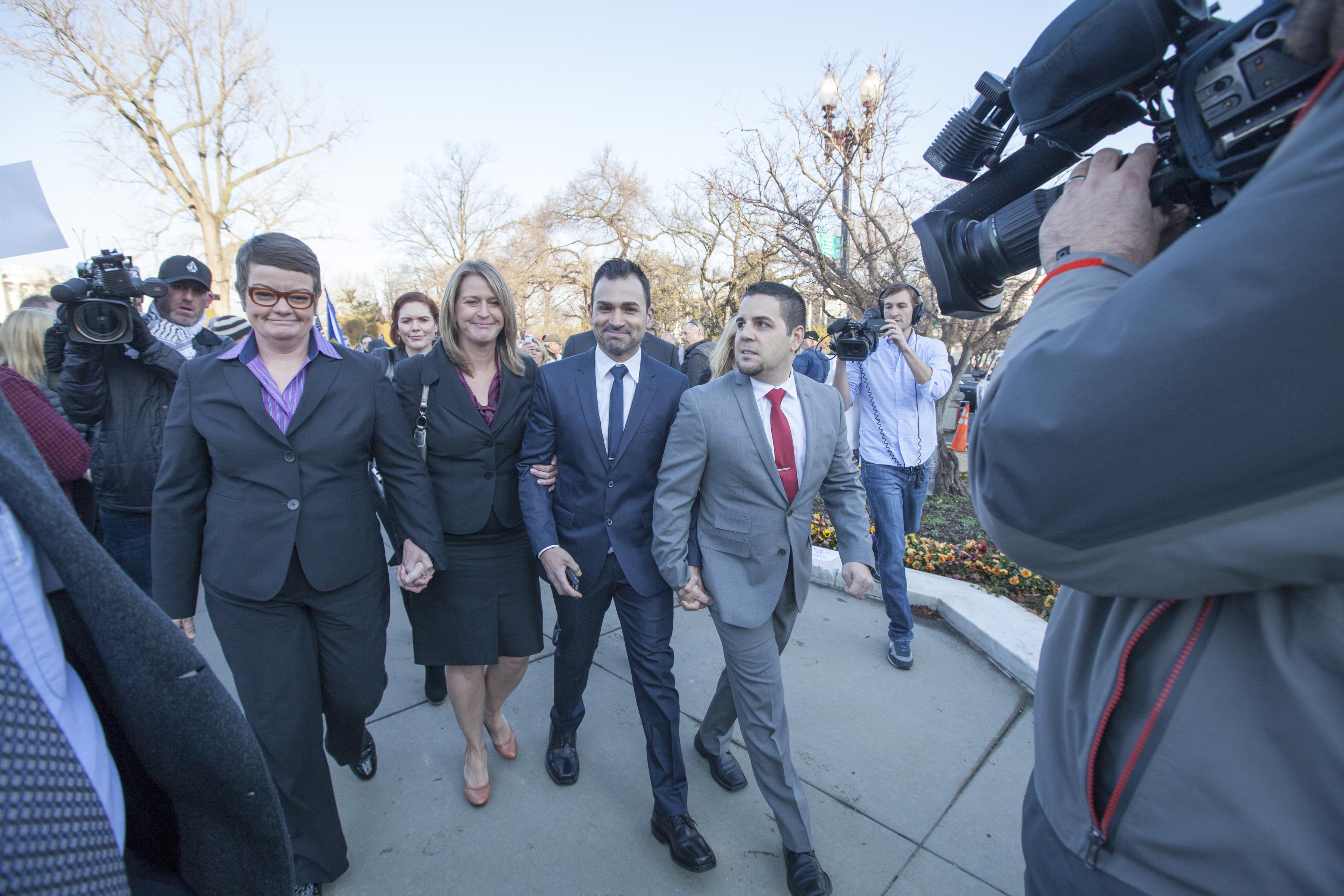On Aug. 4, 2010, U.S. District Court Judge Vaughn Walker became the first federal judge in the history of the United States to rule that a state-level gay marriage ban violated the U.S. Constitution. His order overturning California’s Proposition 8 and restoring marriage equality was, it later turned out, the last valid ruling on the merits of the case. The trial was a momentous event, a profound investigation into anti-gay animus and its place in the law. Its outcome marked the first domino in what would soon be a cascade of pro-gay-marriage rulings. And the legal theories that stood behind Walker’s ruling would soon be echoed in courtrooms in every state in the union.
The first 75 minutes of HBO’s new documentary The Case Against 8, which premieres tonight, tells the thrilling, emotional, inspiring story of Walker’s trial with passion and clarity. Had the film ended there, it would have been nearly perfect. But of course the film can’t stop there, because the lawsuit didn’t stop there: It hurtled through the appeals process, dogged by questions of standing, for nearly three more years, a process the Supreme Court eventually erased by holding that the case effectively ended the day Walker handed down his ruling.
What is history to make of the Prop 8 case, then, with its messy epilogue and muddled legal impact? That’s the question prompted by The Case Against 8, a question it never quite answers. Ted Olson and David Boies, the odd couple/dream team who argued the case on and off for more than three years, clearly wanted it to become a vehicle that would take down every gay marriage ban on the books. The gay rights groups that supported their quest saw the lawsuit as a way to make amends after failing to defeat Prop 8 in the first place. And the plaintiffs at the heart of the case, the documentary proves, just wanted to get married.
Throughout its runtime, the documentary bounces among these three competing goals without ever landing on one coherent narrative. When the Supreme Court punted on the case, ignoring its merits and expunging everything except Walker’s original ruling, gay rights groups claimed that the justices “restored” marriage equality to California. Olson and Boies insist in the film that this was their goal all along, implying that anything else—say, a ruling that brought gay marriage to all 50 states—would simply be some kind of added bonus. No one admits on camera that the Supreme Court’s narrow decision was disappointing, or anything less than they had hoped for. No one sees it as anything but a triumph.
Yet the court’s careful dodge in the Prop 8 case was a letdown. It gave marriage equality back to one state—while ignoring 49 others. And it did so not on due-process or equal-protection grounds, but on an arcane point of standing doctrine. If the court had ruled the way Olson and Boies wanted it to, the last year of gay marriage battles could have been bypassed entirely. The Case Against 8 wants us to ignore that.
Last April in the New Republic, Noah Feldman brilliantly charted the reasons why Olson and Boies’ campaign ultimately proved foolhardy, and Slate’s Nathaniel Frank explained why Roberta Kaplan, Edie Windsor’s attorney, is the true architect of the legal theories currently hustling marriage equality across the finish line. There’s no need to rehash all that here, and there’s certainly no need to scorn Olson and Boies for attempting to short-circuit the gay marriage endgame. They did what they thought was best. In a narrow sense, they succeeded; in a broader sense, they failed. The Case Against 8 only tells the victorious part of that story. That’s the narrative Olson and Boies want to remember, and we needn’t deny them their revisionist history. But we don’t need to pretend that theirs is the full story, either.
